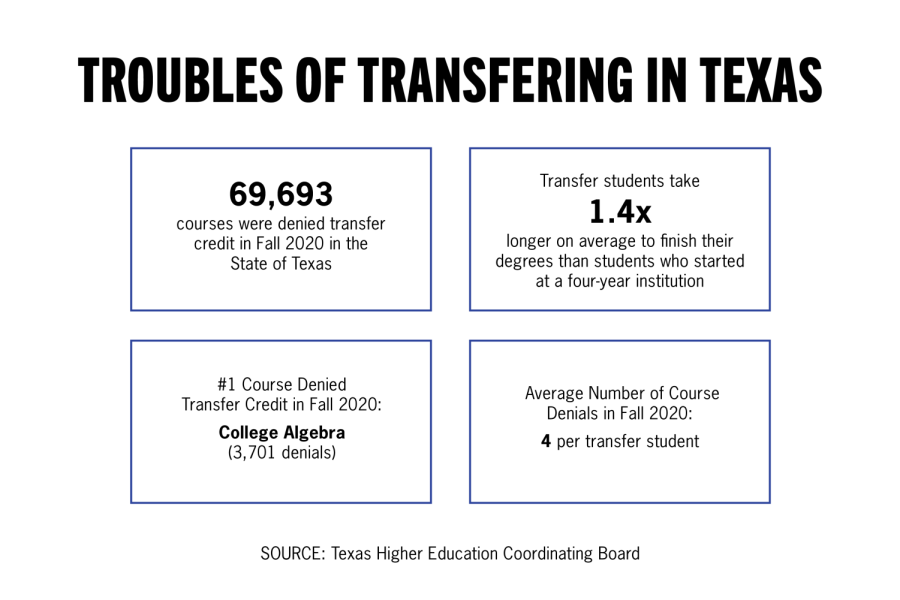Texas Congressman introduces act to increase transparency for students transferring colleges
October 18, 2022
A proposed federal measure called the Transparency for Transfer Students Act could require universities to post transfer deadlines, financial aid information and a list of all schools from which credits are guaranteed to be accepted on their websites.
Community college is an affordable way for students to start their college education, but according to a Sept. 21 press release from U.S. Rep. Joaquin Castro introducing the measure, confusing transfer policies are a major barrier for these students to achieve their four-year degree. The bill has been referred to the U.S. House Committee on Education and Labor for review before it is passed on to Congress.
According to the Texas Higher Education Coordinating Board, transfer students were denied credit from 69,693 courses in fall 2020 when moving from two-year to four-year institutions in Texas. Students looking to transfer to UT have the option to petition their courses from other institutions for credit toward their degree, according to the UT undergraduate website. However, some transfer students, such as political communications junior Linley Brown, said the petitioning process is too lengthy and complicated.
“UT’s transfer process is not super transparent to me,” Brown said. “I was flying blind.”
Brown said she received an associate of science degree in speech communication from Lee College in Baytown, and currently is trying to satisfy her flag requirements.
“Registration was really where things felt the most confusing,” Brown said. “(UT’s website) wouldn’t necessarily tell me what courses I needed to focus on or what gaps I needed to fill because it took until orientation for them to tell me I was core complete.”
To petition for courses, students may have to submit coursework or syllabi from their former school to receive credit at the University. Journalism sophomore Kassandra Araque said without petitioning for credit, transfer students may have additional credit hours with no specific spot on their degree checklist, which makes registration even more hectic.
“I have a bunch of classes that are (not) accounted for, and I didn’t want to put them on this (semester’s) schedule because I didn’t want to take them again,” Araque said.
Araque said she transferred from Colorado State University, where she originally studied political science.
“Sometimes I do wonder if I would have stayed in political science if those classes would have done anything,” Araque said.
Kassandra Ochoa, a current Austin Community College student who hopes to transfer to UT, said she thinks ACC makes transferring to UT more transparent and accessible compared to other colleges.
“Considering that ACC is kind of connected to UT, it just makes it a little simpler for me,” said Ochoa, who has studied social work at ACC for two years. “They make it pretty simple to find the things that I need, like the classes required for me to transfer and the hours that they won’t accept.”
Brown said she is hopeful that the new legislation will make the transfer process easier for those looking to make the move to UT.
“Oftentimes, transfer students are kind of overlooked and we’re grouped in with freshmen,” Brown said. “It is a completely different experience, whether you’re core complete or not.”



